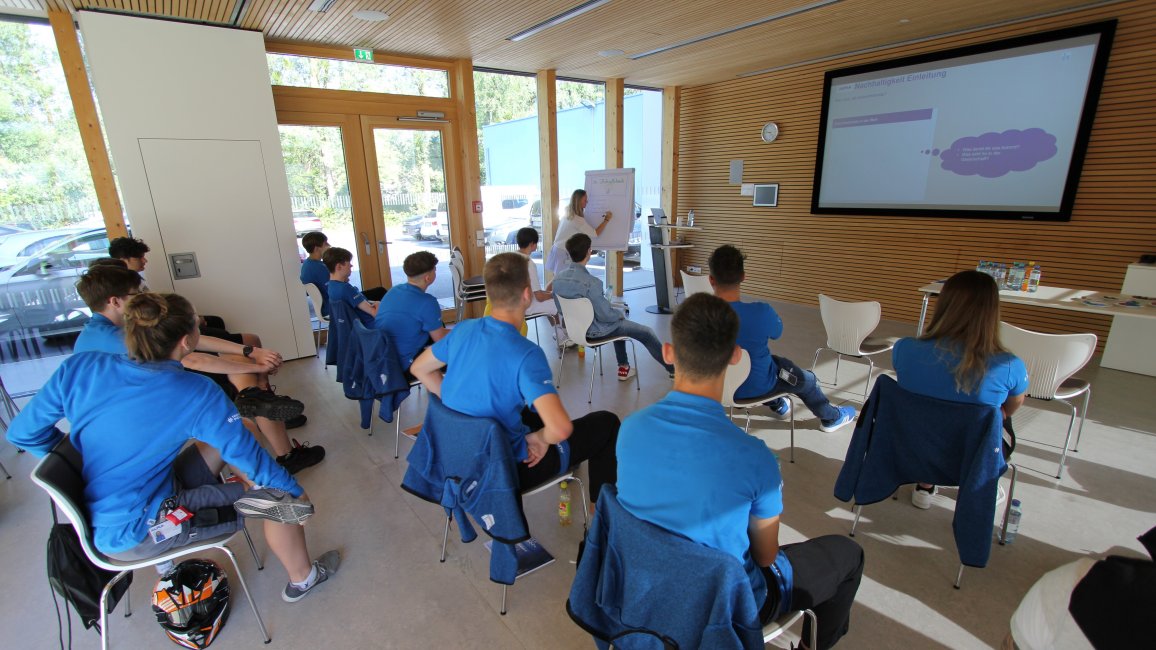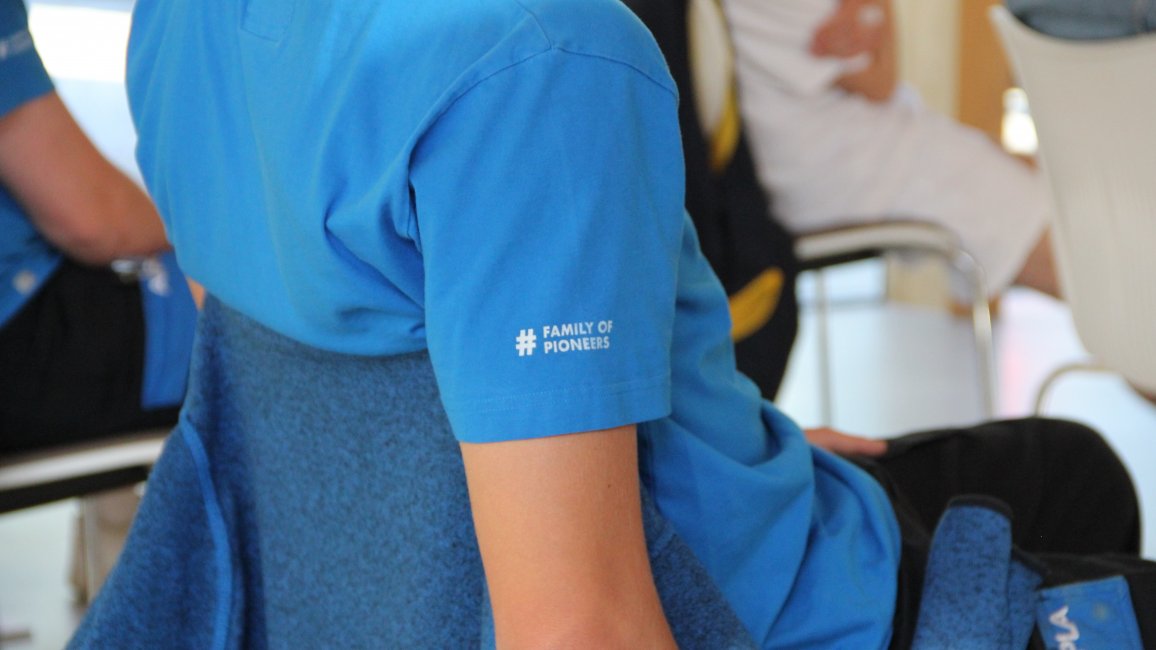For a sustainable future
Fifteen young, junior staff recently considered the subject of sustainability at a workshop at the Hard site. Linda Mauksch from the Corporate Strategy, Sustainability & Circular Economy department passed on valuable knowledge on the subject and discussed current and highly contentious issues surrounding the sustainability of plastic with the trainees.

‘Do any of you know who Carl von Carlowitz was?’ Linda Mauksch, Sustainability Manager, began the workshop for apprentices from the Hard and Fussach sites in Austria with a question about the originator of the forestry sustainability concept from the early 18th century. To understand the importance of sustainable development better, the apprentices were able to do a simple online calculation of their ecological footprint using an online tool and put their consumption in relation to the available resources, which led to a shock for many due to the large deficits. The workshop addressed the young workers’ general fears and concerns about climate change and resource scarcity. Current future-related trends such as electric vehicles and the renewable energy revolution were also studied together. The apprentices were generally very well informed about the subject and consider topical issues in their private life.
Focus on plastic
The participants used the second part of the workshop to discuss whether plastic is sustainable, and if so how sustainable it is, and about the advantages and disadvantages of packaging made of the material. ‘It is important and valuable for young people in particular to critically examine the subjects of plastic and sustainability as well as the societal discussion about them. Our apprentices are currently confronted by them in their professional and private lives and will continue to be in the future too,’ says Linda Mauksch about the reasons for holding the seminar. The topics talked about included the waste issues, with a focus on marine littering, as well as the benefits that the packaging offers for product protection and shelf life and for recyclability. The topic of packaging life cycle assessments was also on the agenda. Linda Mauksch explained the environmental impacts of packaging and results of the latest studies. When comparing various packaging materials, the trainees found that disposable packaging made of glass, for example, was inferior to disposable packaging made of plastic, with only reusable glass containers representing a good alternative and then only in certain conditions.

Sustainability at ALPLA
The third focus area was sustainability and resource consumption at ALPLA. The conversation covered the company’s sustainability goals to be achieved by 2022, which include increasing the share of recycled materials in overall production to 25 per cent for PET and to 10 per cent for HDPE, reducing the company’s carbon emissions by 10 per cent and lowering water consumption by 20 per cent. In order to achieve these sustainability goals, ALPLA operates its own recycling facilities, invests in the development of recyclable and weight-optimised packaging and gives financial support to organisations that are committed to preventing marine littering of plastic.
‘It is motivating for me and my work to see how receptive and well informed our apprentices are when it comes to the subject of sustainability,’ says Linda Mauksch in summary at the end of the three-hour seminar. ‘It is noticeable how the topic occupies the minds of the young workers and is personally important to them. For us as a company, it is essential that we create fresh momentum in this field and keep our workers encouraged. After all, these young people are more invested in the promise of a sustainable future than anyone else at ALPLA.’
Do you like our texts? Perhaps even so much that you want to use them in your own media? Then please get in touch with us beforehand!
